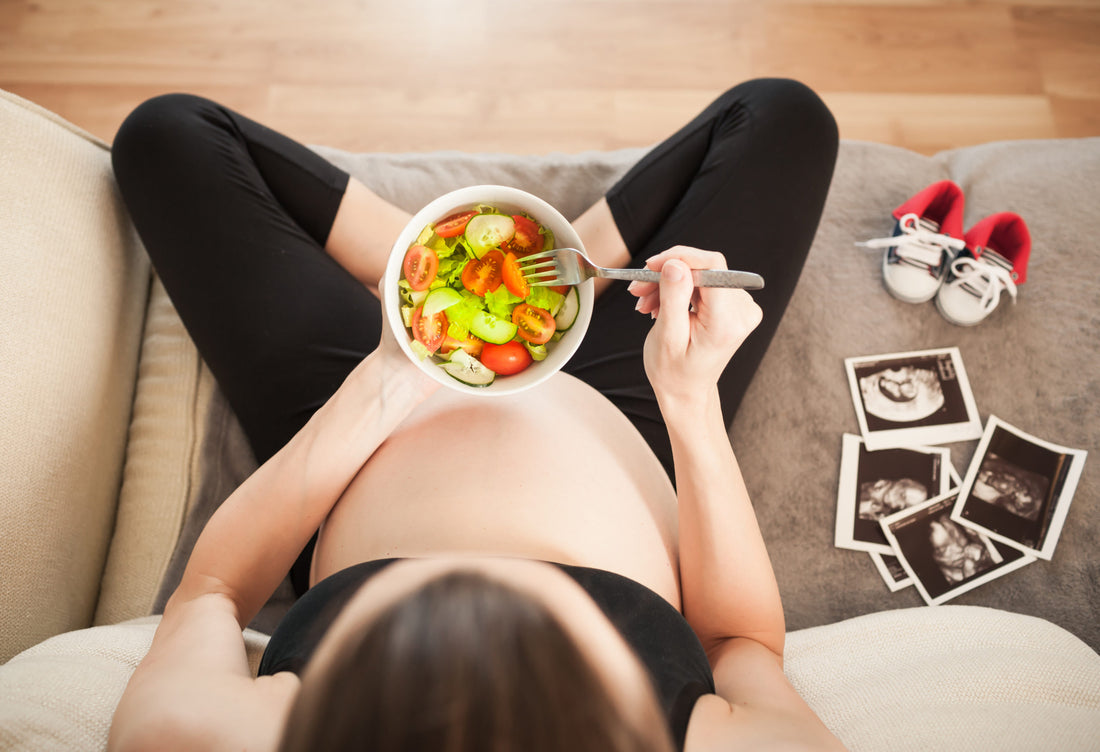
What you need to know about Prenatal Nutrition
Share
As soon as you find out that you are pregnant, there are a lot of things that go through your mind. Will you have a boy or a girl, who will the baby look like, what will this do to your body?
You're also likely wondering about what you should be eating to ensure you're maximizing your prenatal nutrition so that you can take in the proper amount of proteins, minerals, and vitamins to help your body to grow a strong, healthy baby.
But first, a quick caveat: we are not your health provider, and we recommend that you only take dietary advice directly from your health provider!
Essential Prenatal Nutrition
Essential nutrients are proteins, iron, DHA, vitamin C, healthy fats, folic acid, calcium, and iodide. All of these aid the growth of your baby's tissues, organs, blood, and brain. They also help the mother's changing body by providing extra blood, and repairing and developing mom's active organ tissues. These essential nutrients can be found in many different foods, and including most of them in your daily meals will ensure you are getting what you need. If you experience food aversions, look for alternatives - for example, if meat turns your stomach, try peanut butter as a different protein source.

What about cravings?
Some mothers experiencing cravings during pregnancy. Although it is not known definitively why these cravings happen, research points to the change in hormones during this time, which can make a pregnant mom's sense of smell and taste more sensitive. It is okay to satisfy your cravings as long as you are eating safe food items. If you are craving spicy, try salsa or a spicy sauce. If you want something sweet, try fresh or dried fruit. For something crunchy, try carrots, celery, or nuts. Trail mix is a wonderful blend of crunchy, sweet, and salty!
Please tell your doctor immediately if you are craving ice, clay, wax, laundry detergent, dirt, toothpaste, soap, coffee grounds, baby powder, chalk or cotton balls. It sounds strange, but it actually happens! Such cravings can be a sign that you are low in iron or calcium, which would need to be addressed as soon as possible.
Also, be sure to talk to your OB or nutritionist if your pregnancy is high risk and may require a specific prenatal diet to maintain your health with that particular condition.

What to avoid during pregnancy:
Raw seafood, unpasteurized juice and milk, and some deli meats are foods you'll want to avoid while you are pregnant. Talk to your doctor about these foods and when you can incorporate them back into your diet.
In addition, if you are planning to breastfeed your baby, maintaining a diet rich in nutrients is helpful for your recovery and milk production.
Most of all, enjoy this special time in your life, when what you eat helps grow the little life inside of you!